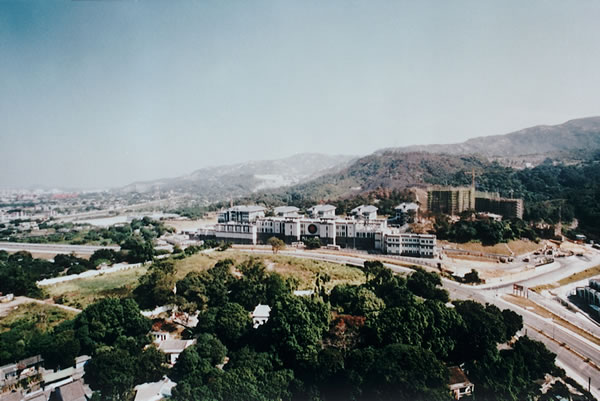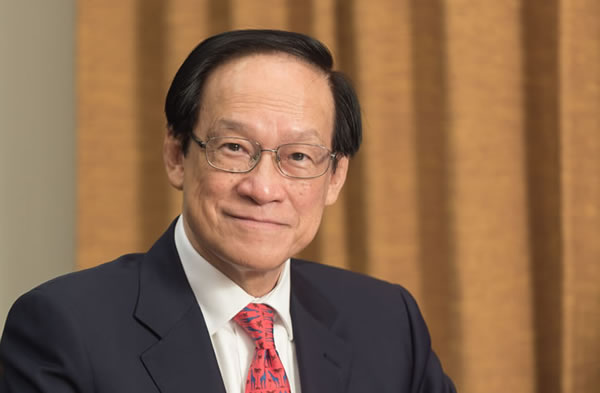"The essence of the liberal arts is erudition and refinement."
To facilitate its future expansion, Lingnan moved to a new campus in Tuen Mun in 1995, and Professor Edward Chen Kwan-yiu became the University’s President. The architectural design of the new campus incorporates features of Lingnan University's original site in Guangzhou, thereby reflecting its fine tradition, which dates back to 1888. Upon moving to the new campus, the University launched Master of Philosophy programmes.

There can be no doubt that President Chen is the "father" of liberal arts education in Hong Kong, although he claims that a liberal arts education was the fine tradition of our forerunner in Guangzhou. When President Chen took up the position, Lingnan was only a small, remote college with a few students. Conditions were deemed unfavourable, but President Chen, having drawn inspiration from the successful Singapore development model, considered them distinct advantages in developing Lingnan into a liberal arts university.
He believes that the “arts” in liberal arts make many people think that the liberal arts are equivalent to the humanities. In fact, a liberal arts education is a teaching model that combines the humanities, arts and sciences, rather than focusing only on language studies and humanities. Moreover, the liberal arts are completely independent, and focus not on the number of subjects, but on interdisciplinary learning. The liberal arts are about the integration and combination of different subjects, and an education that cultivates the "whole person".
The essence of a liberal arts education lies in the way of teaching and learning, and its success depends on three things, which Lingnan has, as well as many qualities that other schools don’t have. The first is to be small. Lingnan is small in scale, which provides a good environment for a liberal arts education. The second is to have a hostel and residential campus. Lingnan provides undergraduate students with full residency opportunities, and this is not based on convenience. President Chen insisted on this very strongly, and even set up support funds to help underprivileged students, because the relationship between peers is part of the liberal arts education.
Third, the whole school must be student-oriented. Liberal Arts create a culture, from the principal to the school helpers and staff. To practise what he preached, President Chen always invited students for breakfast, and his Breakfasts with the President were legendary. All this was to establish student-oriented thinking everywhere.

Soon after he assumed office, President Chen revised the curriculum structure and strengthened the teaching force. He taught courses in person, and participated in student activities, creating a harmonious relationship between teachers and students. In order to broaden the overseas experience of local undergraduates, he believed in developing exchange partnerships worldwide. Overseas regions with little contact with Hong Kong were especially welcomed, regardless of size.
In just a few years, Lingnan’s liberal arts education based on interaction, intra-curricular activities, interdisciplinary learning and international exposure achieved impressive results: in 1998, it received self-accrediting status, and in 1999 it was renamed Lingnan University.
After years of hard work, Lingnan has now become Asia's leading liberal arts university, ranking among the best in the world for Quality Education, thanks to its modernised liberal arts elements: a broad-based curriculum, close staff-student relationships, a rich residential campus, rich out-of-class learning practices, active community service, multi-faceted workplace training, strong alumni and community support, and global learning opportunities.
Reference: 《灼見名家》陳坤耀:香港人對博雅教育仍多誤解 (2014-09-14)